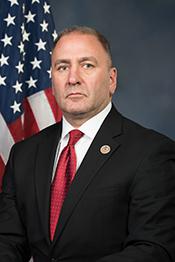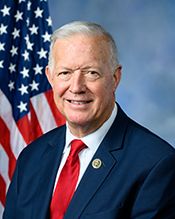H.R. 2776: Imported Seafood Quality Enforcement Act
The Imported Seafood Quality Enforcement Act is a bill aimed at enhancing the safety of imported seafood in the United States. It amends the Federal Food, Drug, and Cosmetic Act and introduces several key measures regarding the inspection and testing of seafood products brought into the country from foreign sources.
Key Provisions of the Bill
Certification and Standards
- The bill requires that no seafood can be imported unless the Secretary of Health and Human Services certifies that the importing country adheres to U.S. standards for seafood manufacturing, processing, and holding. - Each foreign facility that exports seafood to the U.S. must undergo at least one annual inspection to ensure compliance with these standards.Mandatory Testing
- A minimum of 20% of all imported seafood must be tested and inspected annually. - The first 15 shipments from a new exporter must be inspected and tested. - If a shipment fails to meet safety standards, all subsequent shipments from that exporter must also be inspected until they pass a series of 15 consecutive inspections. - If an exporter has more than three shipments fail in one year, they will be barred from exporting to the U.S. for a year unless they demonstrate compliance.Handling of Non-Compliant Shipments
- Shipments that fail to meet safety requirements will either be detained or destroyed unless allowed for re-export. - A rejected shipment must be labeled as "UNITED STATES: REFUSED ENTRY," and the Secretary must notify ports of entry regarding failed inspections.Ports of Entry
- Seafood can only be imported at ports that have personnel trained to conduct the necessary inspections and tests. - The Secretary will determine which ports are properly certified and may provide training to ensure compliance.State Cooperation
- The bill allows for the establishment of a cooperative inspection program between the federal government and states, enabling state officials to conduct inspections and testing. - The Secretary may provide grants to states to support the program and will certify state officials to carry out the inspections.Reporting and Fees
- The Secretary is required to submit an annual report to Congress detailing inspections, testing results, and any noncompliance issues. - The bill provides for the imposition of fees on exporters to cover the costs of inspections, and these will be directed into the Treasury.Penalties for Non-compliance
- The bill introduces penalties for knowingly providing false statements regarding inspections or misbranding seafood, with civil penalties of up to $250,000 for each violation.Relevant Companies
None found
This is an AI-generated summary of the bill text. There may be mistakes.
Sponsors
2 bill sponsors
Actions
2 actions
| Date | Action |
|---|---|
| Apr. 09, 2025 | Introduced in House |
| Apr. 09, 2025 | Referred to the House Committee on Energy and Commerce. |
Corporate Lobbying
0 companies lobbying
None found.
* Note that there can be significant delays in lobbying disclosures, and our data may be incomplete.
Potentially Relevant Congressional Stock Trades
No relevant congressional stock trades found.

